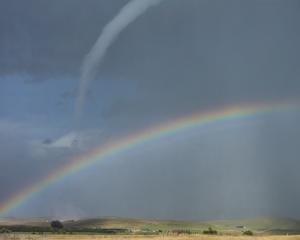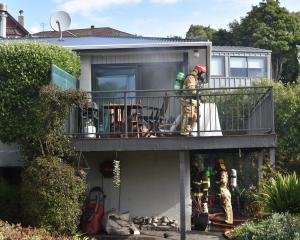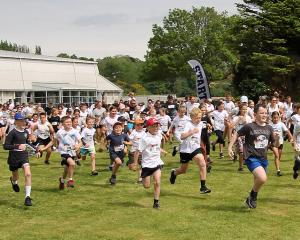Sea lions are making a comeback on the southern coast, breeding numbers are slowly rising and new pups are bolstering the population.
Two sea lion pups born this week take the total number born on Dunedin beaches to eight so far this season and at least another two are expected before the end of February.
Department of Conservation coastal biodiversity ranger Jim Fyfe said should another two be born, it would be the first time "double figures'' had been reached since 1995, when sea lions started breeding again on Dunedin beaches.
"I guess it's a very slow comeback, if you want to call it a comeback,'' Mr Fyfe said.
"It's an accident, really, the fact that the female we call Mum came up here from the Auckland Islands and decided to stay. So that's really what's brought them back. I suppose we regularly have male sea lions coming up ... but less often females.''
"Mum'' was the first sea lion in more than 150 years to give birth on the mainland, at Taieri Mouth in 1994.
Previously, New Zealand sea lions bred in the subantarctic, having been driven away from mainland New Zealand by man.
A pup born at Warrington Beach on January 4 was tagged last Sunday to ensure Doc was able to research its habits.
"We can certainly keep track of who they are, who their mum is, what habitats they're using, mortality,'' Mr Fyfe said.
The Warrington pup was yet to be named.
"The [New Zealand] Sea Lion Trust will name them ... later in the year.''
Dunedin beaches were relatively safe places for sea lions to have their pups as there was adequate space to "hide'', mostly from prying males.
"The males are very interested in the females when they are in season ... so it's a bit of a hide-and-seek game out there. The females are trying hide away from where the males are.''
Mr Fyfe had advice for people who came across sea lions on one of the six beaches where pups had been born.
"Always give them space. Give them plenty of room. They're sharing the public beaches with us, so our recommendation to all public is please give these animals as much space as possible.''
Warrington's resident sea lion mother and pup were expected to be gone in the next two weeks.












